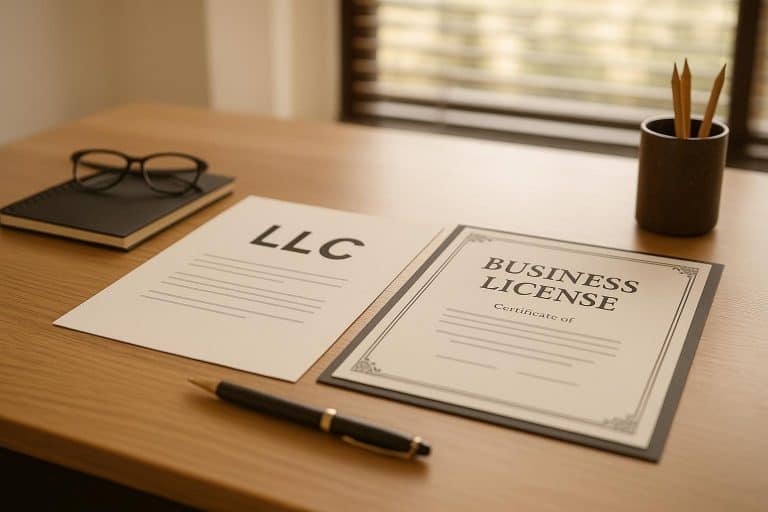Do you know the disadvantages of sole proprietorship as an entrepreneur new to the business industry? Although it’s one of the easiest and least expensive ways to establish and operate a business, it’s not without cons.
Its popularity lies in its simplicity, and you only need to acquire a legal license and register your name to get started. However, it’s not a legal entity and not distinct from the owner.
Are you an entrepreneur looking to start a solo business but don’t know the disadvantages of sole proprietorship? This article details the cons of creating and managing a business entity alone. Let’s get started.
What is Sole Proprietorship?
A sole proprietorship is a business entity where the owner operates alone. It’s relatively inexpensive and easy to set up, and the owner has complete control over the entity, including operations, management, and decision-making.
Sole proprietorships are common among self-employed individuals, consultants, freelancers, and small businesses. They offer simplicity and the Internal Revenue Service tax their income on the owner’s personal tax return.
However, a sole proprietorship has no legal distinction between the business entity and the owner, which can be bothersome for entrepreneurs as they become liable for all expenses. Personal assets might be your bail-out if you run into financial trouble.
What Are the Disadvantages of Sole Proprietorship?
Unlimited liability, limited resources, and lack of continuity are common disadvantages to sole proprietorship. Difficulty in attracting talent with perception and credibility are other cons. Let’s dig into the details:
-
Unlimited Liability
Unlimited liability is one of the most notable disadvantages of a sole proprietorship, as the business owner becomes liable for the entity’s liabilities. Your personal assets are on the line if the company faces legal issues or incurs debts. You could lose your bank accounts, properties, cars, and houses.
Due to its protection structure, establishing a limited liability company is essential for small businesses. It minimizes the risk of losing personal assets to the entity’s debts.
-
Limited Resources
Large corporations can raise capital quickly by attracting investors or selling shares, but a sole proprietorship has no shareholders and cannot bring a new owner on board. There’ll be trouble finding investors because you cannot sell sole proprietorship ownership, which means limited access to financial resources.
In a sole proprietorship vs LLC when securing loans, the limited liability company has a higher chance.
A sole proprietorship might find raising significant capital difficult as investors and lenders often consider the risks due to its ownership structure.
-
Limited Expertise
Business owners are responsible for every business aspect as a sole proprietor, from finance to marketing and operations. It’s an overwhelming process, and you may lack expertise in certain areas, which affects decision-making. It requires a lot of mental strength to cover every angle.
-
Lack of Continuity
Sole proprietorship’s advantages and disadvantages are enormous. However, the entity is tied to your presence as a sole proprietorship business owner. If you decide to shut down, leave, or become incapacitated, it might lead to closure because the company is not separate.
Unlike a corporation or limited liability company where you have board members or shareholders to transfer ownership, a sole proprietorship business cannot benefit from perpetual existence and might collapse.
-
Limited Growth Potential
Sole proprietors can’t afford large-scale economies for buying services or materials because it’s a one-person show. Corporations and limited liability companies often reap these benefits due to their resources being bigger than small businesses.
Sole proprietorships struggle to record significant growth of their limited resources and the owner’s inability to expand and manage the business. They often require additional expertise and capital, which are not readily available to scale up.
-
Difficulty in Attracting Talent
Do you catch yourself asking “What is the main drawback of a sole proprietorship?” As a small business, hiring is difficult because you cannot offer attractive salary perks or packages. Employees also choose to work with larger firms or more well-known companies, leaving you to shoulder the burden alone.
Attracting and retaining top talent can also be challenging without the stability and structure of large businesses. Employees choose more prominent firms for their growth prospects and longevity.
-
Limited Access to Benefits
One of the cons of a sole proprietorship is that you cannot access certain benefits that employees of larger companies enjoy. For example, you can’t have retirement plans, health insurance, and other perks.
-
Taxation and Self-Employment Taxes
Although you can enjoy certain benefits as a sole proprietor, such as no corporate tax payments and deducting business expenses, you must remit self-employment taxes. Furthermore, it often leads to a higher overall tax burden, unlike the structures of a limited liability company.
-
Perception and Credibility
Credibility and perception are associated with sole proprietorship pros and cons. Some partners, suppliers, and customers might perceive the one-man business as less credible compared to larger enterprises. The discernment can negatively affect your relationship with experts in your industry.
-
Limited Succession Planning
Planning for the business future, especially in succession, is challenging for many sole proprietors. Without a clear ownership transfer structure, the business might collapse after the owner’s departure.
Disadvantages to Sole Proprietorship: Key Takeaways
After learning the disadvantages of sole proprietorship, you’ll face complex business challenges due to its structure. Therefore, consider establishing a limited liability company with various benefits.
You’ll enjoy limited liability protection with an LLC structure. It provides access to financial resources and allows you to separate your personal and business assets without being liable for the entity’s debts.
Admittedly, sole proprietors have different problems, so work with experienced professionals at BusinessAnywhere Company Formation Service to establish your LLC today. We’ll make your entrepreneurship dream come true in a few weeks.








